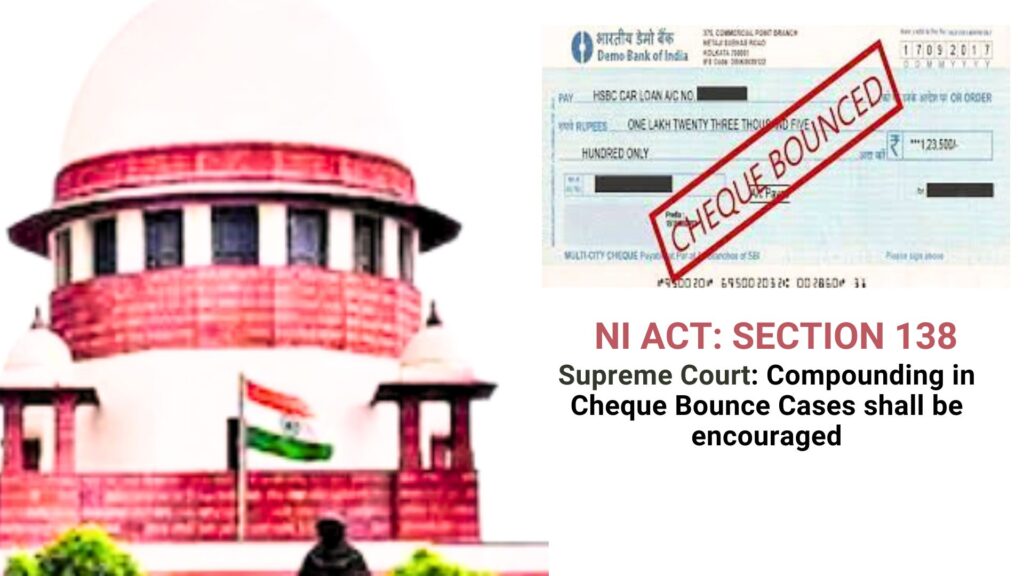Supreme Court: Compounding in Cheque Bounce Cases shall be encouraged

Supreme Court: Compounding in Cheque Bounce Cases shall be encouraged
In a recent judgment, the Hon’ble Supreme Court of India emphasized the significance of the compensatory aspect over the punitive aspect in the cases of bounce cases under the Negotiable Instruments Act, 1881 (NI Act). The ruling came in case of M/s. New Win Export & Anr. v. A. Subramaniam, where the court set aside the conviction of the appellants following a settlement between the parties. The bench comprising Justice Sudhanshu Dhulia and Justice Ahsanuddin Amanullah delivered a judgment that not only resolved the specific case but also provided broader guidance on handling the cheque bounce cases.
Facts of the Case
The case originated in 2006, involving a loan of Rs 5,25,000 that was not repaid according to the terms of the agreement. A legal battle that took place over nearly two decades in multiple courts began when the issued cheque was dishonored for insufficient funds. The court highlighted that the main reason for introducing the offense of cheque dishonor was to ensure the reliability of these financial instruments. The judges did observe, nevertheless, that the judicial system is now very concerned about the sheer volume of these cases that are still waiting.
The bench stressed that the “compensatory aspect” of the remedy should take precedence over the “punitive aspect” in cases under the Negotiable Instruments Act. If parties are willing to settle, they encourage courts to assist in compounding offenses. The court also emphasized how important it is to confirm the validity of settlement documents during the appeal process, a step they followed in this instance by asking the complaint to provide an affidavit.
This decision is in line with earlier Supreme Court rulings, such as Raj Reddy Kallem v. State of Haryana & Anr., in which the accused sufficiently compensated the complainant, leading to the quashing of a conviction even in the absence of the complainant’s agreement for compounding. Based on their settlement agreement and the complainant’s lack of protest, the court decided to acquit the appellants in this case, demonstrating a practical manner to resolving such disagreements. It emphasizes the court’s belief that where parties have come to a mutually agreeable settlement, there is no reason to keep a conviction pending.
Conclusion
This ruling sets a noteworthy precedent that encourages subordinate courts to give settlements and compensation first priority when handling instances involving cheque bounce cases. It is reflective of a more flexible judicial philosophy that aims to strike a balance between the objectives of justice and practical concerns about clearing the backlog of cases and guaranteeing that the primary objective of compensation is achieved. As this approach gains traction, it might result in quicker decisions in cases involving cheque dishonor, which may reduce the load on the legal system and guarantee that the main goal of the legislation—maintaining the credibility of cheques as financial instruments—is preserved by suitable compensatory measures.
To enhance your legal career as a corporate lawyer or to setup your own private practice you must acquire practical legal skills, Inculcatelaw offers comprehensive courses to enhance your legal knowledge. Follow us on Linkedin and Instagram
Submit your blog on submissions.inculcatelaw@gmail.com.